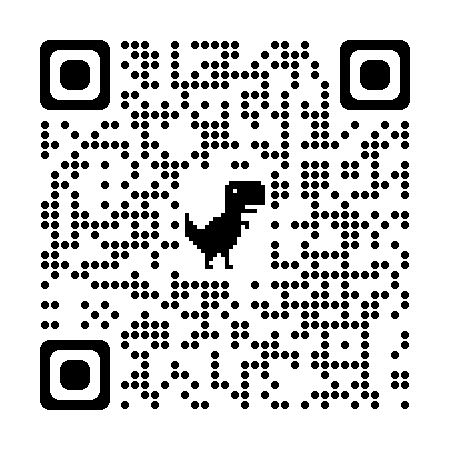Mobile devices are rarely powered off. They wake us up in the morning and get plugged in at night before the looming 1% battery icon goes black with the rest of the screen. Mobile culture has led to a culture of always being available to communicate, respond and work. The unwritten rule is that if it is a short easy answer, reply immediately, if not, by the end of the next business day. We can, if we choose, be available at all hours. With a ping or a jingle, it’s back to work.
The culture of being available is often paired with high pressure teams in private industry but it has creeped into public sectors and social scenes as well. This article from the Harvard Business Review outlines the different implications of being available, or not. Reid and Ramarajan (2016) outline three different types of people. Which one are you? Let us know in the comments.

On a lighter note. Think back to the ridiculousness of the phone booth. If we went back to this time, it would be a total collapse of deadlines and details.
Do you think that being available to deal issues from the workplace and communicate after hours has accelerated the advancement of society or is it just wearing us out?
References
Ackerman, P., & Dalton, M. (2010). The lonely phonebooth. David R. Godine.
Judith. (2021, July 30). How fast should you respond or expect a response to business emails? Business Email Etiquette. Retrieved September 26, 2021, from https://www.businessemailetiquette.com/how-fast-should-you-respond/.
Reid, E., & Ramarajan, L. (2020, December 16). Managing the High-Intensity Workplace. Harvard Business Review. Retrieved September 26, 2021, from https://hbr.org/2016/06/managing-the-high-intensity-workplace.

The HBR article you made reference to was excellent, and certainly still rings true several years later. It made me think about some realizations I have had throughout my career, many of which had to do with how I approached my down time and my feelings of what I owed to my work and my superiors.
Early in my career (and this is still something I see frequently with younger colleagues), it felt to me like I owed my employer and my students all of my time. More time spent working on core or peripheral tasks clearly meant that I was working harder, achieving better outcomes, and proving some sort of worth. I was in the ACCEPTING category of worker, focused on getting rewarded, building relationships, and doing what I thought would forward my career. As described in the HBR article, I also felt resentful to subordinates or colleagues who didn’t do this and put myself in a position to be taken advantage of by those who wished to get things done quickly or hadn’t followed timelines.
I burned out. Dramatically, and nearly permanently. After 1.5 years away from teaching, doing some serious work on rebuilding my health and personal relationships, I went back to teaching. This time, I focused on doing something that Reid & Ramarajan referred to as building a “multi-faceted” approach. I still like to stay on top of things; I answer emails late, stay in frequent contact with a variety of colleagues, families, and bosses, and often work outside work hours. However, I am selective about what I choose to do and make sure it fits in with a finite set of goals. I carve out non-negotiable personal time where I am 100% unavailable and make it clear that I’m doing so.
I think this also comes from an increased confidence in my personal life, job security, and career, being a tenured teacher, and in a happy long-term relationship. I think that the ability to NOT be at arms-length is also a function of my privilege, and I try not to judge or categorize others who don’t have the same approach (whichever way on the work-life balance spectrum it falls). I also counsel younger colleagues to carve out some sort of balance and protect themselves from burnout and the sense of obligation and pride that almost sank me.
While I believe it is great to have the option to respond to something for work, or even pop online quickly to complete a task, I find the responsibility for keeping a mindful approach to this endless access and respecting boundaries can lie a lot on managers/bosses – do they *expect* you to answer at any time of the day or night? Or is it encouraged that employees work standard hours, but they are okay if their employee checks in on something after hours?
I personally am happy I am able to check my email late at night if I need to know something for the next day/to feel more prepared, however, I am glad that I am not expected to do so. I think that once it crosses that line, we can begin to become worn out.
Hi Ryan,
That was a really interesting article. I definitely used to be accepting, and all it really did was stress me out and make me feel inadequate. I also felt that I had unfinished things to do and didn’t have any “me” time. I am revealing now, and find that this serves me much better for my physical and mental health. In fact, our entire staff has been encouraged to create “business hours”. We don’t email each other unless it’s very important/time-sensitive, and our admin leads by example with this as well. I find that our workplace has been much more relaxed since we’ve implemented this! I realize that this could be a very different set of circumstances in a different field of work, btw; not everyone has this luxury.
This I believe is why it is so important to teach digital hygiene and healthy habits.
I made the mistake in my early days in digital media of believing that I needed to respond right away, and it created some really unhealthy work relationships, in which if I then didn’t respond right away, the client would become more and more anxious. Have since learned with new clients that I am best to delay my reply to them initially by a few hours or a day, and only initially respond during the work day on weekdays. Later I can respond more quickly, in the evening, or on a weekend, as the client does not expect it, as the habits and expectations have already been established.